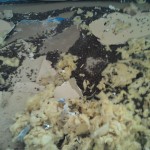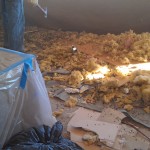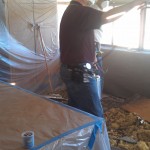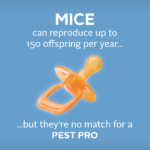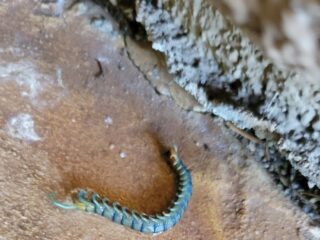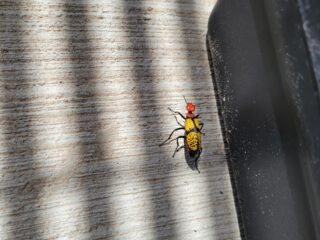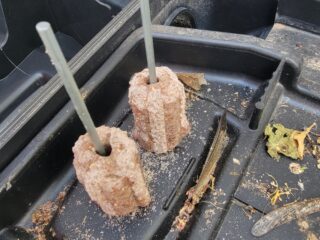10 Common access points
While many entry points are not obvious, a few are. Let’s look at a quick checklist of the more common ones:
1. Under garage doors; where the door does not meet the concrete pad. Replace the seal.
2. Crawlspace vents; repair or replace if screens are ripped or vents broken.
3. HVAC penetrations; where HVAC refrigeration lines go through the foundation and around the unit itself.
4. Hose bibs; where water line goes through foundation or wall.
5. Under first course of siding; occasionally you’ll find an opening between the sill plate and footer.
6. Door frames; openings between door frame and structure.
7. Plumbing vent cover missing or broken; reinstall or replace.
8. Under entry way doors; adjust or replace door sweep.
9. Wire/cable through wall or foundation; seal around opening.
10. Basement and crawlspace doors; seal all openings.
This information taken from an article in B&G EquipNet Technical Newsletter November 2011 by William H. Robinson, Ph.D
I would also like to state a few others that we all should be aware of:
- Never stack firewood against the house, it will attract pest including rodents, spiders and ocassional pests.
- Window screens.
- Weep holes, screens in place or repaired.
- No trees touching the home.
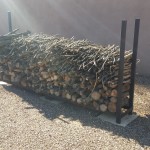
![]() A family of 6 mice in a cluttered garage can grow to 50-60 mice in only 90 days.
A family of 6 mice in a cluttered garage can grow to 50-60 mice in only 90 days.![]() A Norway rat can gnaw through a lead pipe.
A Norway rat can gnaw through a lead pipe.![]() Roof Rats have extra pads and longer digits on their paws, enabling roof rats to be excellent climbers.
Roof Rats have extra pads and longer digits on their paws, enabling roof rats to be excellent climbers.

